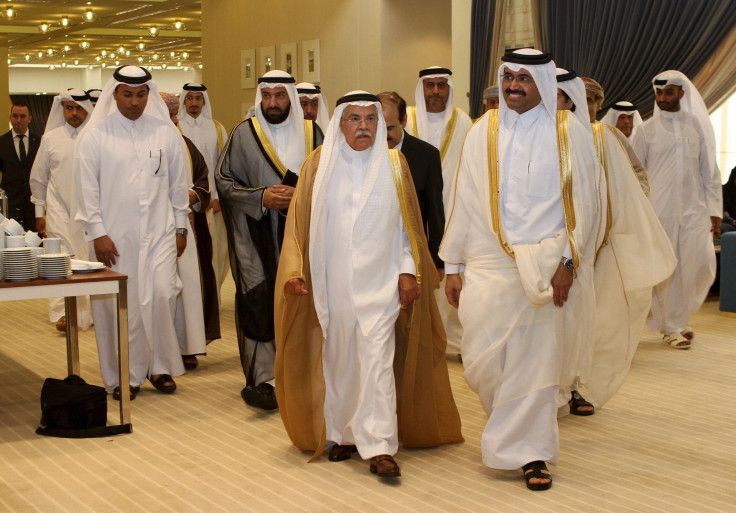Oil-Rich Saudi Arabia Running Out Of Assets? IMF Report Says It's Possible In Next 5 Years

Oil-rich Saudi Arabia could potentially run out the assets it needs to support spending if its government sticks with current policies, the International Monetary Fund said in a report released Wednesday. Gulf states have been hit hard with the plunge in oil prices and conflicts causing regional instability, prompting governments to evaluate their spending.
“Achieving fiscal stability over the medium term will be especially challenging given the need to create jobs for the more than 10 million people anticipated to be looking for work by 2020 in the region’s oil-exporting countries,” said IMF Middle East and Central Asia Department Director Masood Ahmed.
Bahrain and Oman, like Saudi Arabia, could also run out of financial assets needed to support spending. Kuwait, Qatar and the United Arab Emirates were better positioned for the next 20 years, the IMF said. Economic growth for the Middle East and Central Asia, which could pick up to 4 percent next year but would be contingent on regional conflicts and how sanctions on Iran are withdrawn, was projected to be low at 2.5 percent this year.
Conflicts in the region have caused large economic drops with Syria’s GDP falling between 45-60 percent and Yemen’s GDP down approximately 30 percent in the past year.
The IMF’s report pointed to the need for the region’s economic diversification away from oil as millions of people will enter the job market over the next few years.
“The key to resolving the challenge of absorbing millions of new job-market entrants expected over the next few years lies in accelerating economic diversification by creating incentives for private firms to expand activities that do not depend on government spending or oil,” Ahmed said.
Saudi officials have said they were planning spending cuts to address the country’s budget deficit, Bloomberg reported. The world’s largest oil exporter would survive the current plunge in oil prices as it had with past crises, they said. It was likely that Saudi Arabia would likely weather the storm, but if serious adjustments were not made in the next five to 10 years then the country could face great risk, experts warned.
The IMF, however, challenged whether the measures being considered by Gulf states would be adequate for the medium term.
© Copyright IBTimes 2024. All rights reserved.






















